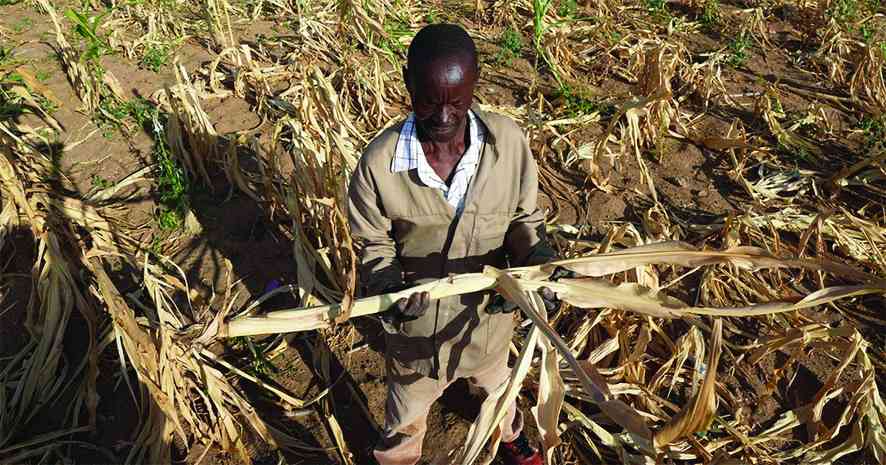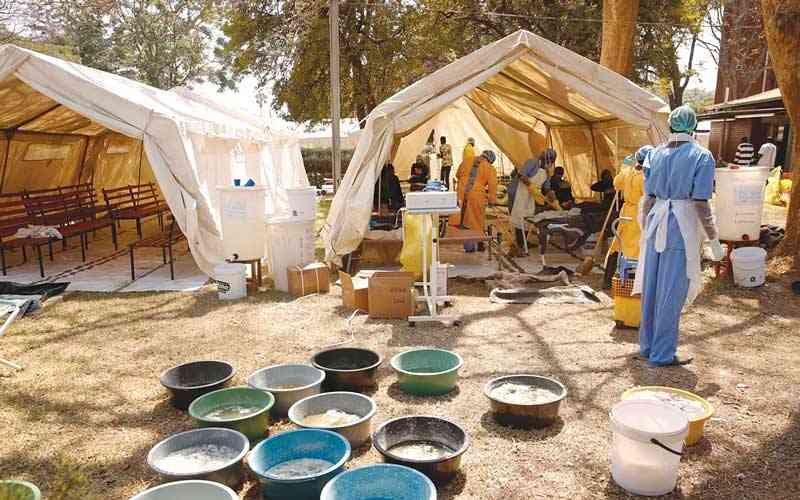
THE front page lead story in our NewsDay edition yesterday made very interesting and revealing reading.
In the story titled Drought caught us off-guard, govt admits, Finance, Economic Development and Investment Promotion minister, Mthuli Ncube is quoted admitting that government did not adequately prepare for the El Niño-induced drought which is currently devastating the southern African region, although acknowledging that it heard something about it.
Ncube said government “didn’t know how deep the drought was” and so it was pleasantly “surprised” that the drought was “much deeper” than it thought.
And given its complete unpreparedness, it is now busy trying to do “some kind of reallocation” of funds from various votes in the 2024 National Budget.
“We may even think about borrowing here and there, although I’m not too worried because we are already at a level where we can serve successfully in terms of external debt,” said Ncube.
While, as usual, Ncube seems the least worried about the situation facing both the government and country, some of us are extremely concerned that the nation is eyeballing a jaw-dropping disaster which has forced President Emmerson Mnangagwa — who has been telling us at every turn that Zimbabwe has enough food to feed the hungry — to eat humble pie and thrust forth a begging bowl in the form of the 2024 El Niño Drought Domestic and International Appeal for Assistance.
What makes us extra apprehensive is the fact that government did not adequately prepare for this calamity despite being warned countless times long before the onset of the 2023/24 rainfall season that the El Niño weather phenomenon will revisit the region with possible devastating consequences.
If our government had the sense to act on this free advice, we would not be running around like headless chickens as we are doing right now. If we had heeded the warnings we should have better prepared for this drought situation which is deeper than what meets the eye.
- Mavhunga puts DeMbare into Chibuku quarterfinals
- Bulls to charge into Zimbabwe gold stocks
- Ndiraya concerned as goals dry up
- Letters: How solar power is transforming African farms
Keep Reading
The drought will surely have devastating effects on our already battered economy which is in desperate need of respite.
Fundamentally, this drought speaks to critical the nature of water supply which permeates every sector of the economy, meaning that henceforth government should never sleep on the wheel on such grave issues as drought.
As we speak, the Zimbabwe National Water Authority has since warned that the country’s urban areas face major water crises due to the El Niño-induced drought, with Bulawayo, for instance, in the throes of debilitating water shortages.
Even the much-touted mitigatory Presidential Borehole Drilling programme may not be enough to rescue us from the desert because, for example, reports from Bulawayo indicate that the water table there is now so low that most of the holes being drilled in the city are yielding no water, which is scary, if you ask us.
This is why we keep insisting, as we have done in our many previous editorial comments, that government should be more serious when it is warned about certain situations facing the country.
Granted natural disasters are largely unpredictable, but in this modern era, humanity’s predictions using technology are now quite accurate. So our government, which seems to have a knack for paying little attention to advice, should be more proactive by acting early on information with a strong bearing on the nation’s survival.
We are in this mess all because of poor planning. And a typical example of this poor planning is that we don’t have any grain reserves to speak of, yet we used to have them and could even afford to feed others in times of drought.







